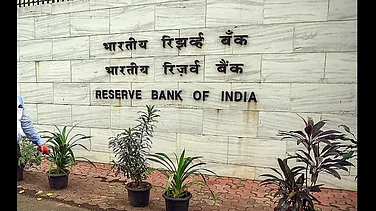The union government has become desperate to kick-start consumer demand in the economy. Confirming this, the Reserve bank of India (RBI) on Thursday asked all the commercial banks to link mandatorily their all floating rate loans extended to retail and MSME sectors, to external benchmark from October 1, 2019. The loans that will be linked to external benchmarks will include all personal and retail loans (housing , retail) and loans extended to Micro, Small and Medium Enterprises (MSME) by the banks.
The RBI has been working for the long time on the issue of its decision to transmission of reduction in rates with the commercial banks. The central bank has reduced repo rate (the rate at which lends to banks) several times in the recent past and was expecting banks to pass on this relief to their consumers. However, the Banks showed lack of interest in passing on the benefits to their consumers. Banks cited higher cost of fund and pressure on their balance sheet because of rising non-performing assets (NPAs) from the corporate defaults.
RBI asked the Banks to fix their lending rates for personal, retail and MSME loans to following benchmarks. Banks can link interest rates on such loans against RBI’s policy repo rate, Government of India (GoI)’s 3-months Treasury Bills (T-Bills) yield rates published by the Financial Benchmarks India Pvt Ltd (FBIL), GoI’s 6 months T-Bills yield or any other benchmark market interest rate published by FBIL.
Shrikant S. Chouhan, Senior Vice-President (Equity Technical Research) said, “RBI has made it mandatory today for banks to link their new floating rate for home, auto and MSME loans to an external benchmark from beginning next month. RBI’s move is aimed at the borrowers (consumers of financial products such as loans), who can now enjoy lower rate of interest. However, this move will have negative impact on the Banks and that’s why it triggered a sell-off in Bank stocks, especially in private banks, which closed in the negative. It also increased liquidation pressure in Bank Nifty which closed in the red by almost 0.80 per cent, whereas Nifty 50 closed flat at 3 points over its previous close. Sensex was a shade lower after losing 0.22 per cent over the previous day”.
Earlier, the lending rates were linked to the marginal cost of fund-based lending rate (MCLR). The RBI had constituted an Internal Study Group (ISG) system of
to examine various aspects of the MCLR system. The final report of the ISG was published in October 2017 for public feedback. The ISG observed that internal benchmarks such as the Base rate/MCLR have not delivered effective transmission of monetary policy. The Study Group had, therefore, recommended a switchover to an external benchmark in a time-bound manner.































